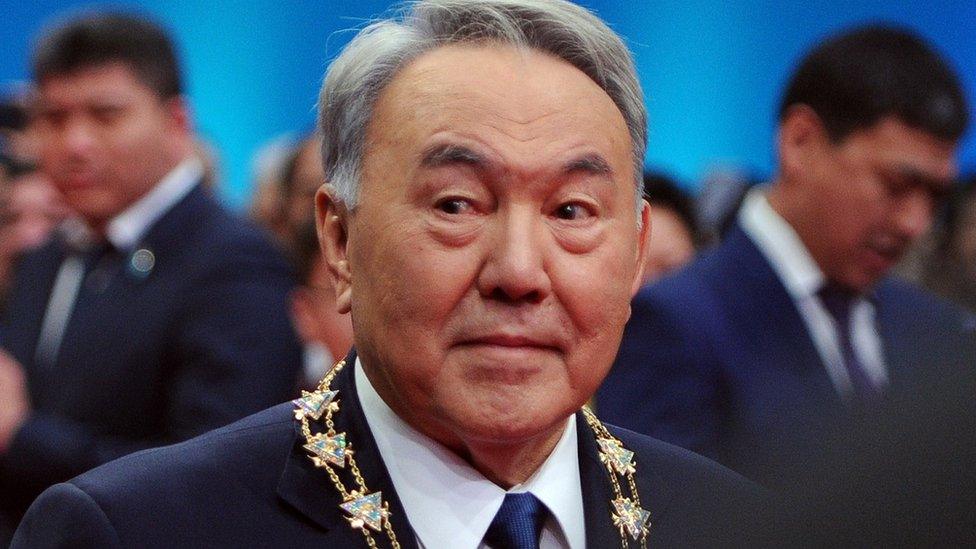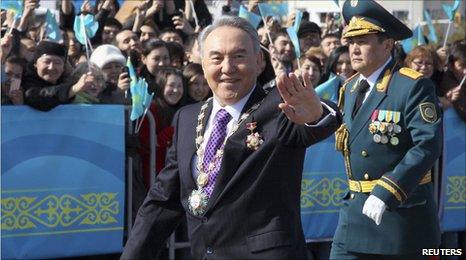Kazakhstan profile - Leaders
- Published

President: Nursultan Nazarbayev
In power virtually unchallenged since independence from the Soviet Union in 1991, Nursultan Nazarbayev has focused on economic reform while resisting moves to democratise the political system.
He remains popular among ordinary Kazakhs. His supporters say he preserved inter-ethnic accord and stability during the reform in the 1990s, and is widely credited for the country's impressive economic growth in first decade of the new millennium.
Mr Nazarbayev has concentrated extensive powers in his own hands and is accused by the opposition of suppressing dissent. Although he says he advocates democracy as a long-term goal, he warns that stability could be at risk if change is too swift.
Born in 1940, Mr Nazarbayev came to power in 1989 as first secretary of the Communist Party of Kazakhstan and was elected president the following year. He was re-elected after the break-up of the Soviet Union in 1991.
He was re-elected against largely token opponents in 1999, 2005, 2011 and - most recently - in 2015. In each case, his share of the vote rose, reaching more than 97% in the last vote, and the conduct of every election was criticised by foreign observers.
In 2007, parliament, in which the ruling party held all seats, voted to allow the president to stay in office for an unlimited number of terms. In 2010, MPs granted Mr Nazarbayev the lifelong title of "leader of the nation".
His 2011 victory came after judges ruled unconstitutional a plan to hold a referendum on whether to let Mr Nazarbayev to stay in power until 2020 without facing election.
The president thereupon said he rejected the changes, which had been strongly backed by MPs and by many voters.
When Mr Nazarbayev does step down from the president, he will have a permanent seat on the defence council and a role as head of the people's assembly, which unites members of different ethnic groups, according to a law approved in a 2007 referendum.
The president merged his Otan ("Fatherland") party with his daughter Dariga's party, Asar, in July 2006, in a move seen as consolidating the president's power. The united party was named Nur Otan ("Ray of light of the fatherland") in honour of Mr Nazarbayev.
Nur Otan holds an overwhelming majority of seats in the Kazakh assembly, but international monitors faulted the latest parliamentary elections - held in January 2012 - as failing to meet basic democratic principles.
- Published8 April 2011
